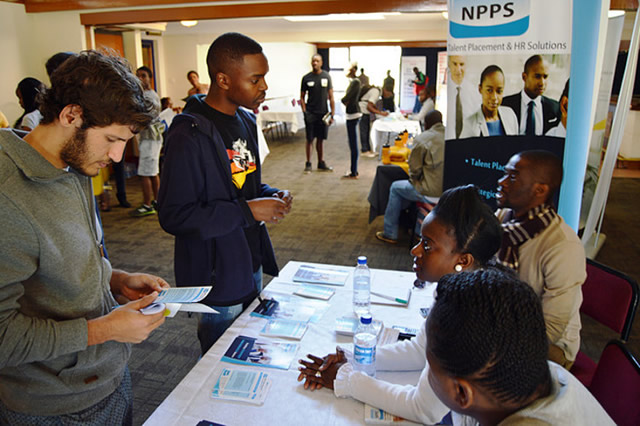Career guidance vital in education

Christopher Farai Charamba : Review Correspondent
A job can be defined as the daily activity that one undertakes to earn a living. A career on the other hand is a lifetime commitment that one makes. It is a long term journey through education, work and other related activities that one undertakes in their life. Children are often asked at various stages of their upbringing what they want to be when they grow up. This decision forms the foundation of their career as at various stages of their education the subjects they choose and activities they participate in are geared towards this particular career.
If a child says they want to be an engineer, for example, it is likely that they will take science subjects in school and participate in bridge building clubs; if a child wants to be a lawyer they are likely to do arts subjects and take up debate.
Choosing a career is a very important decision as it is often a life lasting. As such one should be encouraged to choose a career that suits their passions.
Unfortunately this is not often the case. The decision pertaining to what career they will pursue is often made by their parents or their teachers.
Mr Hardlife Muhamba of CareerAid in Zimbabwe believes proper career guidance is lacking for students, parents and educators to encourage children into the fields that suit both their ability and passion.
“Career guidance is important for children as they need to make an informed decision about what they choose to do for the rest of their lives.
“Career guidance includes activities like career information and advice giving, competence assessment, mentoring, supporting career decision-making, developing career management skills, which help citizens assess and identify their skills, competences, areas of interest and make decisions concerning training and employment.
“One thing that is important to note is that career guidance calls for a multi-stakeholder involvement with all parties collaborating,” he said.
According to Mr Muhamba the responsibility for career guidance should not be left to one career guidance teacher in a school but lies with educational institutions, the Government, the private and public sector as well as parents and guardians.
“Each party has a significant role to play in providing career guidance to the youth. Educational institutions must adopt a learning-centred approach, over and above an information and advice approach.
“They should take a developmental approach and build career education into the curriculum.
“The Government should also play a role by providing clear and more explicit guidance to schools on what constitutes a comprehensive careers guidance strategy, how to secure independent, external careers guidance and how to monitor the impact of this provision effectively,” he said
Mr Muhamba added that the role of the public and private sector should be to assist in providing a platform for students and school leavers to be exposed to their careers of choice through volunteer opportunities, internships and work opportunities.
Parents should also contribute by understanding the talents and interests of their child and supporting those rather than forcing a career on their child.
Career guidance facilitators operating in Zimbabwe feel that the public effort facilitated by schools and the Government is not enough to adequately prepare students for making such decisions.
Ms Alexandra Mliswa of Novus Capitas, a career and youth development partnership, believes that there is a serious shortage of working career guidance programmes for school going children particularly those in public schools.
“We want to change the manner in which students and graduates are introduced to employment, internship and scholarship opportunities.
“Our vision is to create a definitive platform that will provide solutions that cater to the needs of students and young graduates.”
Ms Mliswa believes that one of the ways to properly advise students is to bring them in contact with individuals who work within their fields of interest for them to gain a better insight into what they propose to do.
“In July last year we hosted our inaugural Careers Fair at Chapman Golf Club and intend for it to be an annual. Various companies were invited to talk to students, both in university and in high school, about the career opportunities that exist at their companies.
“We also had consultants who work with universities from all around the world come talk to students about the scholarships that students can take advantage of.”
Mr Tariro Munyayi of CareerAid said while private schools fared better in providing career guidance there was a serious gap in public schools.
“In our endeavour to facilitate career guidance we often find schools that do not have career guidance teachers and the teachers that are at the school are inadequately equipped to answer some of the career related questions their students have.
“We have approached the Government in an effort to work with public schools and offer career guidance services through career fairs and other related activities. However they were not too receptive stating that they already had a similar programme and this would be a duplication of efforts,” he said
Mr Munyayi believes that such services should not be left to one organisation to provide but need to be carried out by my multiple agencies so as to reach as many students as possible.
“Career guidance should begin from a young age where a child’s talents and passions are identified and nurtured. It is important that parents and teachers expose children to a wide variety of activities: academic, social and sporting and then encourage them to pursue those that they enjoy and excel at,” he said.










Comments